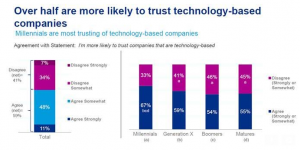To all the small businesses with mobile-friendly websites: We salute you.
Maybe you followed our local search advice, or maybe you came to the conclusion yourself. One thing’s for sure—you’re making the mobile web a better place for users.
But your job isn’t done. Far from it. There’s one more thing—one major thing—you can do for your mobile website.
And if you follow through with it, you’ll be in an even better position to help users.
You’ve got to increase your page speed.
Yes, we realize making your site mobile-friendly was a huge effort. We can understand your thinking: “My mobile-optimized site already puts me ahead of my competition. Why do I need to do anything more?”
To fully understand the why, there are two things we need to answer:
- How page speed factors into higher conversions
- Why page speed matters for local search
Trust us when we say you’re going to want the SEO services we’re talking about.

The faster your page speed, the higher your conversions.
Page Speed is the Key to Higher Conversions
Why does page speed matter so much?
Faster websites = more revenue. It’s as simple as that.
Actually, it’s not that simple. (Then again, nothing in SEO is.) Which is why it’s worth to know why page speed offers such a huge advantage to a small business like yours.
Here’s how your customers normally find your business online: When someone uses a search engine like Google, they’re often looking for an answer to a specific question. If your business’s website can provide that answer for them, it will show up in their search results. Your future customers will click on your site, expecting to find out the answer to their question.
Now what do you suppose will happen if your site takes too long to load? Do you think your customers will wait patiently for your site to load?
No, they won’t. They will leave.
You could have the best deals in the world. You could have the fastest shipping, the friendliest customer service. But those will mean nothing if your potential customers don’t stick around to see it.
Because the thing that will scare mobile users off more than anything else is page speed. Not bad Yelp reviews, not an ugly interface. (Although those aren’t great to have either.) This is how bad it is:
- 40% of all users will abandon a site if it takes longer than 3 seconds to load (Kissmetrics)
It gets worse:
- 40% of users will go to a competitor after a bad mobile experience (Google’s Mobile Playbook)
So not only will users leave your site, but they’ll go to your competitors’ sites. If you don’t optimize your mobile website’s speed, you are giving your customers to your competition.
Even loyal customers who have bought from you time and again—it’s only a matter of time before they go looking for a website who can offer them your service faster.
The fix for this is easy: Increase your page speed.
Websites that load faster retain their users better. And the longer those users stay, the more likely they will make a purchase.
But increasing page speed goes beyond just retaining customers. Faster page load speed can have other beneficial effects:
- Reduce bounce rate
- Generate more leads
- Increase PageRank score
- Get Google to index more pages
So you see, users are only one side of the coin when it comes to page speed. Google also wants websites to be as fast as possible. It’s all part of their current focus on giving users amazing mobile experiences. (And in case you were wondering, “amazing” means “fast,” at least in part).
Faster page speed makes your site easier to use. And when your site is easy to use, you and your customers benefit from it.
Why Page Speed Matters for Local Search
Why does local search matter so much to your small business?
Quite a lot. Google has been making a big push to accommodate people who use the search engine to find nearby businesses. They want to make sure people find what they’re looking for right away. Page speed helps with this.
Say your small business thrives off the patronage of your local population. You might think you don’t need to focus on page speed. After all, people who find your website are already in the area—you’re bound to attract them just by virtue of proximity.
Hate to break it to you, but that’s just bad business sense. Why leave something to chance when you can take action that is statistically proven by Google to retain customers, boost your Google visibility, and get you more revenue?
Because that’s what you can get when you increase your page speed. With a fast mobile page, users who find your business online—by “chance” or not—will find what they’re looking before. And when their search query is met with a fast, responsive website, they’ll be more likely to stick around.
And that’s when you make a sale.
Need more convincing? Google unveiled three local ranking factors last year that are critical to having a successful local site.
- Relevance—how well your business matches up to the user’s search
- Distance—how close you are to the local user
- Prominence—how well-known your business is
These factors can put your local business site on the first page of Google. We’ve written a blog that can show you how to take better advantage of them. Click here to read more.

How to Increase Your Page Speed for Your Mobile Site
Now you know how crucial it is to increase your mobile page speed. But how do you do it?
Here are a few steps and strategies you can use for page speed success:
Get your site on a CDN. That’s a “Content Delivery Network.” The basic idea behind CDNs is they help your site content get to users more quickly depending on where they’re located. For example, say someone searches for your business, which is located in downtown Los Angeles. But your site is hosted on a server located in Tampa Bay, FL. Your site will load more slowly for users than a competitor’s site that is stored locally. A CDN ensures your site will load quickly no matter where users are searching from.
Improve your site with HTTP/2. HTTP/2 is becoming the new standard, thanks to more efficient compression, prioritization, and loading of data. With the old HTTP, your site content had to wait in line before loading, which could look sluggish and incomplete on the user’s end. HTTP/2 loads everything at once. That’s crucial when you consider the short amount of patience people have when using mobile.
Offer a different experience for mobile than your desktop site. When you think of mobile sites, do you picture your regular website, only smaller? If so, you could be shooting your business in its proverbial foot. Many mobile sites are only scaled-down versions of the desktop versions, which we’ve already said can look kind of janky. But you can do one better by designing your mobile site to cater to the needs and demands of mobile users.
Users act differently on mobile than they do on desktop. They don’t want to be bogged down by images and ads and unnecessary code. Mobile sites have to be fast, or it’s off to the next one they go. So make sure your mobile site isn’t plagued by scroll bars or other hangers-on from your desktop site.
The Bottom Line
Giving users a unique, fast, amazing mobile experience when they visit your website—that should be a top priority. Of course, improving your ROI and getting people to buy stuff is important too. But you can’t afford to ignore the importance of mobile any longer.
Only by implementing these page speed suggestions can you compete with—and crush—your competition.
Digital & Social Articles on Business 2 Community(45)





